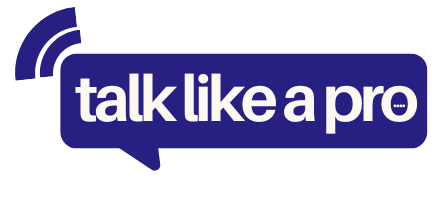I still remember the time I struggled to move my sofa up three flights of stairs all by myself. I was too embarrassed to ask my neighbors for assistance, convinced I could handle it alone. After 45 minutes of huffing, puffing and barely budging that stubborn sofa, I realized I desperately needed help.
If you find yourself in a similar predicament, don’t be afraid to ask for assistance. Whether you’re moving furniture, tackling a work project or just feeling overwhelmed in general, requesting support is not a sign of weakness. Here are 15 alternative ways to say “I need your help” while maintaining your dignity.
What are 15 Alternative Ways to Say “I Need Your Help”?
We all require help at times, but openly admitting our needs can feel uncomfortable or vulnerable. Before listing some polite, discreet options for soliciting assistance, here’s an important reminder: needing help does not make you helpless. It simply means you recognize your limitations and have the wisdom to request support when necessary.
With that said, here are 15 roundabout ways to ask for assistance without uttering the exact words “I need your help”:
- Could you lend a hand with this?
- Would you mind giving me a hand?
- This would go much quicker with an extra pair of hands.
- I could really use a hand here.
- Do you have time to assist me with something?
- How can I convince you to help me out?
- I don’t suppose you’d be willing assist me?
- Is there any way you could spare a few minutes to give me hand?
- Would you be able to assist me with something?
- I seem to be stuck here. Any chance you could help me get unstuck?
- This is proving more difficult than anticipated. Any chance you could pitch in?
- I would be so grateful if you could help me with this task.
- I could really use an extra set of hands. Any chance you’re free to help?
- Do you think you could spare a bit of time to lend me hand?
- I don’t mean to impose, but could I convince you to help me out?
Key Takeaways
- Reaching out for assistance when you genuinely need it is not a character flaw or weakness. It takes confidence and self-awareness.
- Politely and respectfully asking for help typically leads to better outcomes than struggling solo.
- There are countless diplomatic ways to request help that allow you to save face. You needn’t bluntly state “I desperately require your help.”
5 Editor’s Choice Ways to Request Assistance
1. This would go much quicker with an extra pair of hands.
This handy go-to phrase indirectly communicates your need for assistance without having to openly admit you require help. It’s a polite, laidback way to rope someone into lending you a hand.
2. I could really use an extra set of hands. Any chance you’re free to help?
Another casual but clear option, this query gives the other person an easy out if they happen to be busy or unwilling to help. The lighthearted tone takes the sting out of potential rejection.
3. How can I convince you to help me out?
Posed as a playful challenge, this approach adds a touch of humor while soliciting assistance. It’s harder to refuse help when the request doubles as a charming joke.
4. Would you mind giving me a hand?
It’s tough to say no to this simple, straightforward request. The “would you mind” phrasing softens the imposition, giving the potential helper an graceful way to politely decline if needed.
5. Could you lend a hand with this?
Short, polite and to the point, this concise query makes it easy for someone to help you out. The casual “lend a hand” wording maintains friendly informality.
Formal Ways to Ask for Help
In professional or formal situations requiring assistance, it’s best to utilize polite but straightforward phrasing that clearly communicates your need. Flowery or indirect language can confuse, especially in written memos or emails.
When crafting a formal help request, mind your manners, acknowledge the favor you’re asking, and make it as easy as possible for the reader to assist you.
Example formal help request email:
Dear Susan,
I am currently tackling the quarterly analytics presentation for the executive team, which as you know is a considerable undertaking. Would you be able to lend some assistance with compiling the data and proofreading slides? I would be most grateful for any support you can provide to ensure this presentation comes together smoothly.
Please let me know if you can free up a few hours this week to collaborate. I’m aiming to complete the slide deck by Friday afternoon. I could really use another set of eyes to make sure the information is clear, accurate and adequately supported by metrics.
Sincerely,
Sarah
Other potentially useful formal phrasing includes:
- I would greatly appreciate any support you can provide.
- Assistance from your team would be invaluable in this regard.
- Do you have availability to collaboratively tackle this project?
Informal Ways to Ask for Help
In casual settings or when speaking with friends, feel free to let your colorful personality shine through. Informal help requests allow for humor, sarcasm and even a dash of melodrama if appropriate.
Example informal help request text message:
SOS Betty! I’m moving next week and severely underestimated how much stuff I’ve accumulated over the years. I foolishly thought I could handle packing solo but now find myself drowning in boxes and bubble wrap. Would you pretty please be willing to lend an afternoon or two of unpacking assistance? I will repay you in homemade brownies and eternal gratitude! But honestly at this point, I will pay you in cold hard cash just to save me from this torture…Have mercy and put me out of my packing misery!
Other casual options include:
- Feel like assisting me with something so I don’t epically fail?
- I require urgent backup over here! Mayday!
- Help a sista out?
- Wanna be a gem and help me not screw this up?
Is It Correct to Say “I Desperately Need Your Help”?
When it comes to asking for assistance, desperation often carries some shame or stigma surrounding failure, weakness and lack of self-sufficiency. This causes many struggling solo to avoid transparently communicating their pressing need for support.
However, verbs like desperately ultimately communicate honesty. When you swallow your pride and openly admit how badly you need aid, people take notice and rush to your rescue. Vulnerability, after all, often inspires others to lend a helping hand.
So by all means, go ahead and shamelessly say “I desperately need your help” if authenticity suits the situation. Direct, emotionally transparent requests make it crystal clear that assistance is urgently required, propelling helpers to take immediate action.
Just be mindful of who you make desperate pleas to and ensure you’re not overstating or dramatizing your need in ways that undermine credibility. Use discernment, but don’t fear removing filters and being genuine. As studies show, nothing captivates human attention and empathy more effectively than raw, unapologetic honesty.
Conclusion
Needing occasional help proves you’re self-aware, not incapable. With so many polite, lighthearted ways to ask for assistance, there’s no reason to let pride or embarrassment hold you back. Whether you’re transparently desperate or casually in need, requesting backup enables you to thrive with ease. Never shy away from soliciting support or collaborators. After all, no one succeeds alone. Reach out and allow others to help you soar.


